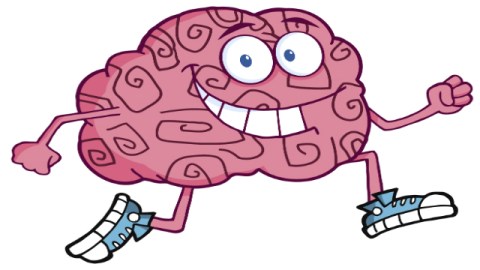Slow Down, You Think Too Fast.

What’s the Big Idea?
Psychologist Daniel Kahneman, author of the new book Thinking, Fast and Slow, knows more than most about how people make decisions. As a rule, he says, we’re not very good at predicting the future. Kahneman won the 2002 Nobel prize in Economics “for having integrated insights from psychological research into economic science, especially concerning human judgment and decision-making under uncertainty.” Kahneman’s work demonstrates that humans have some psychological tendencies that interfere with clearheaded decision making – focusing on the wrong variables, for example. He cites the example of moving to California in hopes that the nice weather will make you much happier. Many, many people do this. Yet nice weather, according to a study Kahneman did in 2006, has a very minor impact on human happiness. Other factors – good relationships, for example – are much more significant.
Thinking, Fast and Slow examines what many psychologists recognize as two separate mental systems – “fast thinking,” which roughly corresponds to what we call intuition or “gut instinct,” and “slow thinking,” which tends toward deliberative reasoning.
According to Kahneman, there are very few circumstances in which system one – more impulsive and emotional than system two – is your best guide. As a rule, he’d advise everyone to slow down their decision making whenever possible. In general, system one is most reliable within your area of expertise. A chess master, for example, might be able to make a great move based on gut instinct (though even in this case, slowing down couldn’t hurt) because she’s internalized tens of thousands of possible patterns of gameplay.
And for those self-styled Columbos among you who still stubbornly insist on trusting your hunches in every domain, another intriguing finding: confidence has nothing to do with good decision making. That is, there’s no connection between your level of confidence that you’re making the right decision and the outcome of that decision.
What’s the Significance?
In some domains, says Kahneman – those in which there are simply too many variables and too much volatility to predict anything accurately – there is almost no reliable guide to good decision making. High-yield stock market speculation is one such example. And although a “go for it, and the risks be damned!” mentality may be necessary in an entrepreneur, Kahneman points out that very small percentage of entrepreneurial ventures succeed. While the market may profit overall from entrepreneurial risk-taking, the decision to start a new business may be completely ill-advised at a personal level.
The real value of Kahneman’s research is in focusing our attention on decision making not as a unique and marketable form of self-expression but as an area in which we have shared – and often unhelpful – tendencies as a species. If we learn nothing else from his monumental body of work, the mantra “slow down” should give us pause to think closely about why we want to move to New Jersey, vote that jerk out of (or into) office, or quit our day job and hit the road, and whether doing so is likely to get us whatever it is we seek. The answer’s not necessarily “no,” but it very well might be.
Image Credit: Shutterstock.com
Follow Jason Gots (@jgots) on Twitter





